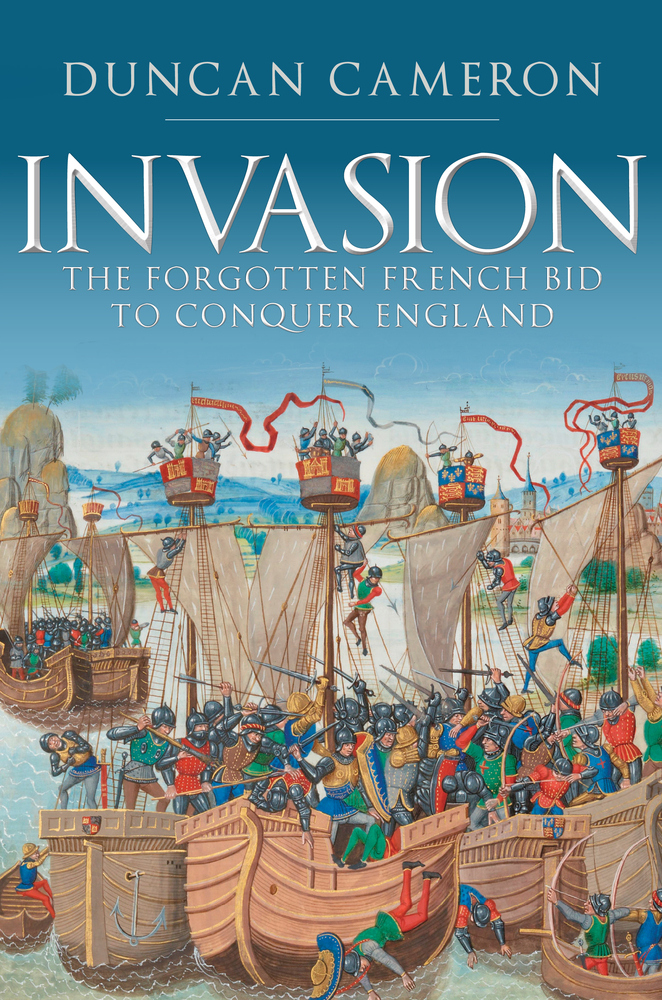Adventures in Bookland: Invasion by Duncan Cameron

The author, Duncan Cameron, makes his bold claim right up there in the title and subtitle: Invasion: the forgotten French bid to conquer England. So the question arises, after 266 pages does Cameron succeed in convincing the reader that the attempts by the Valois kings to turn back English aggression during the successive reigns of Edward III (who ruled from 1327 to 1377) and Richard II (1377 to 1399) actually amounted to a serious attempt to invade and conquer England? Not really. Perhaps a more accurate title for the book, and one that indicates where its real strengths lie, would be By Fire and Sea: the unsung role of naval and marine warfare in the first decades of the Hundred Years’ War.
For it is certainly true that, bedazzled by the great Edwardian victories at the Battle of Crécy and the Siege of Calais, and the even more remarkable victory of Edward’s son, the Black Prince, at the Battle of Poitiers in 1356 which resulted in the capture of the French King, Jean II, and his youngest son Philip, contemporary chroniclers and later historians have tended to emphasise the land battles of these early decades of the Hundred Years War. While not surprising – Edward’s forces at the Battle of Neville’s Cross also managed to take captive King David II of Scotland, holding him captive and for ransom until 1357, meaning that for a year Edwardian England held the kings of France and Scotland captive – Cameron makes clear in his book that cross-Channel raiders played a much larger part in the French resistance to the destructive English raids, the chevauchée, which were a key element in Edward’s strategy, than has generally been acknowledged.
Faced with English armies burning and looting across northern France with the strategic aim of rendering the French incapable of fighting back, successive French kings authorised destructive counter chevauchée, employing mercenary crews of Genoan and Monegasque sailors and marines to man oared galleys as the spearheads for these amphibious raids on the ports of southern England. Some towns such as Winchelsea that had previously waxed wealthy on the proceeds of the lucrative wine trade with Gascony (a French province that, by the complicated laws of inheritance, was actually the personal property of Edward III) never recovered from the devastation caused by these combined naval attacks, the Genoans and Monegasque marines storming ashore, burning and looting, while French cogs, the mainstay of North Sea trade, waited at anchor to take all the looted goods home. The final French ‘invasion’ of England never actually happened, with the main invasion force defeated by weather and logistics, thus making the big reveal at the end something of a damp squib. But the journey there reveals a fascinating and little-known side to 14th-century warfare.
0 Comments